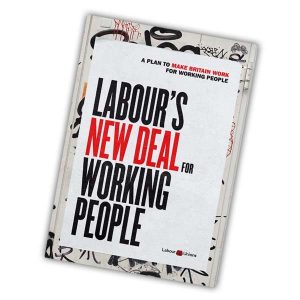The Campaign for Trade Union Freedom AGM was held on 30 September; set out here is the Secretary’s Report highlighting the activities of the Campaign over the past year.
Secretary’s Report
Strikes (Minimum Service Levels) Act, 2023
The period immediately after last year’s AGM was concerned with mobilising against the Strikes (Minimum Service Levels) Act 2023. As per the Motion carried at the TUC Congress in September 2023 a Special Congress was convened on 9 December to consider ways of opposition to the Act. See also the Motion carried at our 2023 AGM.
The TUC did call a national demonstration on 27 January in Cheltenham under the slogan “Protect the Right to Strike.” This however was not the demonstration called for in the Special Congress motion, it was really an anniversary event marking 40 years since the banning of union membership by employees at GCHQ (subsequently reversed by the Blair government in the late 1990s). CTUF volunteers leafletted the demonstration.
The difficulties the government was going to encounter with the Act were demonstrated in January when LNER indicated it would issue a work notice against ASLEF whose members were scheduled to start a period of discontinuous industrial action; the union responded by adding 5 extra days to the action leading to the employer withdrawing the work notice threat.
In December 2023, jointly with the Institute of Employment Rights, we published an 8 page supplement in Morning Star dealing with the Act. In November, subsequently updated in May, jointly with the IER we published a comprehensive briefing document on the Act.
MSL Act: local government campaign
In the Spring we worked with Strike Map targeting local councillors, calling on them not to issue work notices when confronted with strikes by their employees. Local authority employees were potentially covered by 4 of the 6 proposed Minimum Service Regulations: teachers and other staff in schools, tramways, fire and rescue and, health services.
217 councillors signed a pledge opposing the use of work notices and 8 councils carried motions not to issue work notices:
Bolton
Dumfries & Galloway
Glasgow
Islington
Leeds
Liverpool
Sheffield
South Lanarkshire
Durham Miners’ Gala and Tolpuddle Martyrs’ Festival
Labour’s victory in the General Election in July may hold out some promise of a significant improvements in rights at work especially if it moves to fully implement its Green Paper, New Deal for Working People.
As we have in recent years, we organised fringe meetings at both the Durham Miners’ Gala and the Tolpuddle Martyrs’ Festival, the focus of both being Labour’s New Deal for Working People now called Labour’s plan to make work pay – delivering a new deal for working people.
Speakers at Durham:
Andy McDonald MP
Fran Heathcote: General Secretary, PCS
Gawain Little: General Secretary, General Federation of Trade Unions
Lord John Hendy KC: Campaign for Trade Union Freedom/Institute of Employment Rights
Matt Wrack: General Secretary, FBU and President, TUC
Mick Lynch: General Secretary, RMT
Mick Whelan: General Secretary, ASLEF and Chair, Labour Unions
Sarah Kilpatrick: Vice-president, NEU
Sarah Woolley: General Secretary, Bakers’ Food & Allied Workers’ Union
Steve Gillan: General Secretary, Prison Officers’ Association
Chair – Carolyn Jones: Campaign for Trade Union Freedom/Institute of Employment Rights
A report of the Durham meeting is here:
Matt Wrack’s speech is here:
Sarah Woolley’s speech is here:
Speakers at Tolpuddle:
Adrian Weir: Assistant Secretary, Campaign for Trade Union Freedom
Alex Gordon: President, RMT
Fran Heathcote: General Secretary, PCS
Gawain Little: General Secretary, General Federation of Trade Unions
John McDonnell MP
Sarah Woolley: General Secretary, Bakers’ Food & Allied Workers’ Union
Chair – Steve Preddy: Regional Secretary, Unite South West
A report of the Tolpuddle meeting is here:
TUC Congress
In the run up to this year’s TUC Congress and Labour Party Conference one of our Assistant Secretaries, Adrian Weir, had this blog published on Labour Outlook, looking at what Labour should deal with in its soon to be published Employment Rights Bill
For the TUC Congress and Labour Party Conference we published jointly with the IER, a 6 page newsletter dealing with what would be necessary to include in Labour’s forthcoming Employment Rights Bill. Download here:
On the Congress fringe, jointly with the IER, we hosted a fringe meeting
What Labour’s Employment Rights Bill needs to include with these speakers:
Lord John Hendy KC
Fran Heathcote, PCS General Secretary
Neil Todd, Thompsons Solicitors
Dr Joe Atkinson
Prof Lydia Hayes
James Harrison, Institute of Employment Rights
Chair: Sarah Woolley, BFAWU General Secretary
Officers of the Campaign and Campaign National Committee members also spoke at a fringe meeting organised by Sussex Morning Star Readers’ & Supporters’ Group, Repeal all anti-union laws
Carolyn Jones, Campaign for Trade Union Freedom
Gawain Little, GFTU General Secretary
Lord John Hendy KC
A report of the meeting is here: https://www.morningstaronline.co.uk/article/labour-peer-vows-fight-government-ensure-four-decades-anti-union-laws-are-repealed
Miscellaneous
On 9th March we provided a speaker for the Essex CATUC day school in Chelmsford.
On 15th June a rally was held in Sheffield marking the 40th anniversary on the Miners’ Strike and the police riot at Orgreave coking works. CTUF volunteers leafletted the rally.
We look forward to the Autumn and the publication of the Employment Rights Bill.
Andy Green
National Secretary



